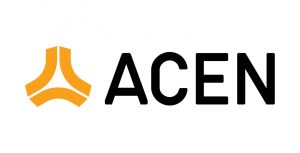How AI will change the way developers work

By Laurent Doguin
1. Investments in WebAssembly will continue to grow.
While getting less attention next to the popular and trending large language models (LLMs), WebAssembly (WASM) is one to look out for. WASM is still evolving and has experienced recent advancements with companies continuing to invest in the future of this technology alongside the Bytecode Alliance.
WASM is making its way into databases, cloud platforms, edge devices, various SaaS technologies and more. Today, there are new technologies being developed to increase WASM interoperability, to create even more value around it. That said, as WASM continues to mature and more companies invest in this technology, we will see a usage increase both in and out of the browser, especially as new runtimes and compilers are developed.
2. Developers will brush up on their Python skills to keep up with LLMs.
While it was fairly easy to skip the Kubernetes hype and other infrastructure-related trends, AI and the focus on LLMs will be nearly impossible for developers to ignore.
For example, improving developer productivity is critical to the success of any technology organization. Each developer has different tasks, different stacks to work with and requires different things from various LLMs. As a result, developers will need to start fine-tuning LLMs to their specific needs, and Python is the default programming language to achieve that.
3. Generating code with artificial intelligence (AI) will be easily accessible through low-code/no-code.
Everybody’s talking about generative AI and LLMs and for good reason. However, there are still many unanswered questions about regulation, privacy, security, intellectual property and more.
Developers’ natural response to these challenges often mirror a curious and entrepreneurship-like approach, with many developers taking the “I’m going to build my own thing to solve this problem” route. But as developers’ interests grow around a particular area, the general level of knowledge rises, tooling improves, and abstractions move up so that it becomes easier to tackle a particular problem.
If we look at the most optimal way to fine-tune models, it’s often well-suited to a chain of tasks, and this can be easily represented graphically with low-/no-code tooling. As such, we can expect low-/no-code and generative AI to work hand-in-hand in facilitating everyone’s productivity.
4. Federated learning will be a key player in the future of AI, especially in a privacy-challenged world.
While it’s true that we might be done with the traditional learning set when it comes to AI, there are still many untapped sources of data. Anything we do on our devices syncs to a server to either train LLMs or fine-tune LLMs to a specific usage.
That’s where federated learning comes in. With the recent popularity of generative AI, there has been more buzz around adopting a decentralized approach to training AI models, also known as federated learning.
By having the ability to secure training models and support privacy-sensitive applications, federated learning will be a critical player in unlocking the future of AI, while addressing crucial concerns around data privacy and security.
Laurent Doguin is the director of developer relations and strategy at Couchbase, the cloud database platform company. Previously, he was a developer advocate at Couchbase where he focused on helping Java developers. Prior to Couchbase, Laurent held developer roles at Clever Cloud and Nuxeo.




